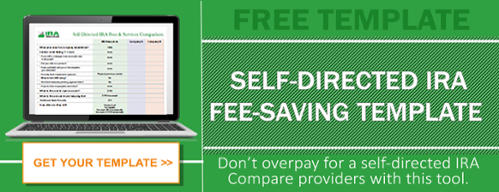3 Things About Investing in Vacant Land with a Self Directed IRA

Raw or vacant land— another way many investors chose to diversify their retirement, compounding the flexibility of a self-directed IRA with the flexibility of untapped potential. You can buy and hold the property, develop the land for resale, rent it out for farming or solar energy— there are almost endless options. But, as with all IRA investments, there are some things to keep in mind when investing in this tax-advantaged account— and they can make the difference between massive and meager returns. Here are 3 to anticipate when investing:
1. There May Be Unexpected Expenses — and They Must Be Paid from the IRA
You might think that raw or vacant land wouldn’t require a lot of continued maintenance, but you never know what might come up. You don’t need quite as much cash on hand as a typical real estate investor tends to, but there are expenses that may arise— and those costs need to come from the IRA.
For example, even if you have nothing built on your property, your IRA will owe property taxes, you may be required to clear brush for fire compliance, or pay to have a fallen tree hauled off the property.
Your obligations as a land owner will vary depending on the state and county, but you may be on the hook paying for regular brush clearing or other required safety maintenance for your vacant land. Be sure to check what is required in the county you’re looking to purchase in, as these violations can turn into fines (which then turn into levies). Ask nearby land owners to get a better idea of the anticipated expenses.
And of course, as with all IRA investments, your IRA must pay all expenses and accept all income.
You can make decisions on behalf of your IRA, but the IRA must sign all contracts, pay all bills, and collect any refunds or income. So, if you need to pay someone to do some of that previously mentioned basic maintenance or property development, those costs must come from the IRA.
Investors generally leave a cash buffer in their self directed IRA (or another easily accessible retirement account) in case of unexpected expenses.
2. Prohibited Transactions
You have to watch out for prohibited transactions, just as with any other IRA investment— but that means if you already own the land (or if a disqualified person owns the land) then your IRA can’t buy it. That also means you can’t sell the land to a disqualified person, or let a disqualified person use or work the land, even once. So don’t clear any brush, trees, or property yourself (or let your father/son/daughter help)— that’s not allowed.
That also means, when developing the property (or if there are some buildings on your site already, maintaining the structures) you can’t hire these disqualified persons to do the work, and you can’t do the work yourself either.
3. Depending on what you do with the property, may be subject to UBIT
Unrelated Business Income Tax (or UBIT) is a tax that applies to any income not “substantially related” to the main purpose of the IRA, i.e. saving and investing for your retirement. What exactly is considered “for the benefit of your retirement” verses unrelated business income can be nuanced, so it’s important to keep in mind (and consult with a tax professional is there’s any confusion).
UBIT doesn’t generally apply to rental income, or traditional buy and hold investments, but it may apply depending on exactly what you do and how you structure it.
For example, if you purchase a plot of land, build a home, and then rent out that property, that rental income is typically not considered UBIT-applicable. But, say you buy a large plot of land to parcel, develop, and eventually sell individual lots, that may be considered running a property development business— or it may not, depending on the timeline and other aspects of your deal. That’s where a tax professional can be helpful.
In a Nutshell
Any self directed investment needs to follow the rules, but with raw or vacant land the rules can apply a little differently than expected. Sometimes investors overlook these essential details. To protect your hard-earned retirement savings, think of all possibilities and question as much as possible! If there’s any grey area, be sure to ask!
As always, if you have any questions, please reach out to an IRAR representative. We’re always available to answer your questions.








Comments (1)